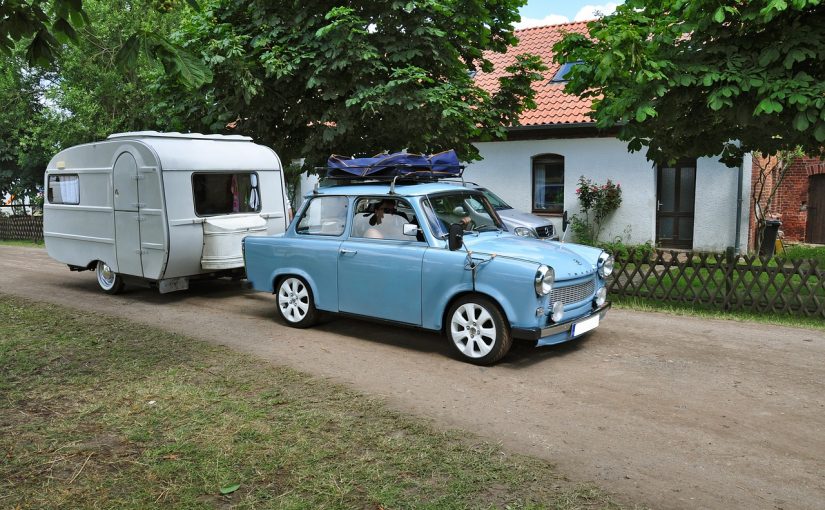
Towing With A Car: 7 Essential Tips For New Drivers
Posted in: Driving Tips, Motorway Driving, News.
Towing With A Car: 7 Essential Tips For New Drivers
Learning how to tow with a car as a new driver can be intimidating and daunting at first. Whether you’re planning to haul a caravan for a family holiday or moving bulky goods, understanding the essentials of towing can make a significant difference to your driving experience. Towing involves more than simply hitching your trailer to your car and taking off. It affects how you accelerate, navigate, and brake, demanding additional awareness and skill. Moreover, it’s crucial to familiarise yourself with the different changes that may affect you, such as the new rules for towing a trailer with a car. Today we’ll take a closer look at a few key things that every new driver should be aware of when towing with a car. You will find some practical examples to help you on your towing journey.
Understand Towing Laws And Regulations
In the UK, towing laws can be complex, especially for new drivers. Depending on when you passed your driving test, the rules about what you can tow can differ. For example, if you passed your car driving test on or after 1st January 1997, you are allowed to tow a trailer that weighs up to 3,500kg maximum authorised mass (MAM). This refers to the weight of both the vehicle and trailer. Make sure you check the owner’s manual to find out what the maximum authorised mass is. It’s typically shown on a sticker or plate fitted to the vehicle or trailer.
Choose The Right Towbar
An essential element in towing is the towbar, which is what physically connects your car to the trailer or caravan. Since there are many different towbars available on the market, it’s crucial that the towbar you choose is compatible with your vehicle and suitable for the weight and type of trailer you intend to tow. Moreover, towbars need to be professionally fitted to ensure safety and compliance with regulations. Towbar Express is a leading provider of towbar fitting services, so you can count on their friendly team to help you select and fit the right towbar for your needs.
Properly Secure Your Load
When loading your trailer, it’s essential to distribute the weight evenly. As a rule of thumb, around 60% of the load weight should be toward the front half of the trailer, and the rest distributed evenly at the rear. This helps to prevent the trailer from swaying during transit. All items should be securely fastened to prevent shifting while in motion. Also, loose items can create unpredictable trailer behaviour and can be hazardous if they fall off during your journey.
Practise Driving And Manoeuvring
Towing dramatically alters the driving dynamics of your vehicle. So, it requires more concentration and awareness of your surrounding environment. Make sure you practise driving with the trailer attached in a safe, open space before hitting the road. Learn how to reverse with the trailer, and remember that your vehicle will move in the opposite direction to the one you steer when reversing. Practise making wider turns, braking earlier, and accelerating slowly to understand how your vehicle behaves with the additional load.
Use Appropriate Towing Mirrors
If your trailer or caravan is wider than your vehicle, it’s a legal requirement in the UK to fit suitable towing mirrors. For example, towing mirrors for caravans can help you prevent accidents due to lack of visibility. Without them, you could be liable for a fine, so it’s a requirement you wouldn’t want to ignore. More importantly, they’re vital for your safety and the safety of other road users. When fitting towing mirrors, ensure they provide both a view down the side of your vehicle and the road behind it. Remember that these mirrors extend the width of your vehicle, so extra care is needed, particularly when manoeuvring in narrow spaces or passing close to other objects.
Regularly Check Your Trailer
Make sure you check your trailer before setting off and at regular intervals during your journey. There are a few important things to consider, such as ensuring the hitch is secure, and the lights are working properly. Also, you should check that the tyres are at the correct pressure and that the load remains secure at all times. Essentially, regular checks will help you spot potential issues before they become bigger problems, providing a safer and smoother towing experience.
Plan Your Journey
Lastly, keep in mind that towing a trailer or caravan means that you may find some roads more challenging to navigate than others. This is why, it can be a good idea to plan your journey in advance, considering factors like road width, gradients, and the number of low bridges or overhanging trees. This will allow you to choose the most suitable route, avoiding potential hazards or difficult manoeuvres. You should also be mindful of speed limits when estimating your journey time. In addition, towing tends to be more tiring than regular driving, so you may want to plan for regular breaks every two hours or so.
Tags: Towing With A Car 7 Essential Tips For New Drivers